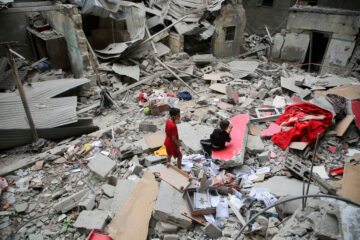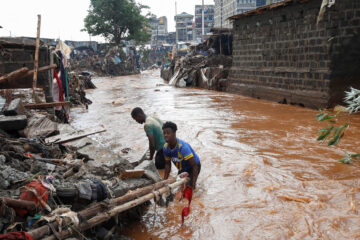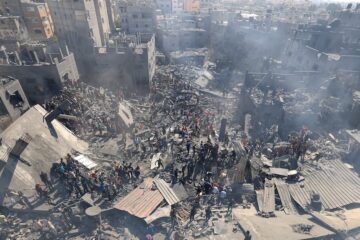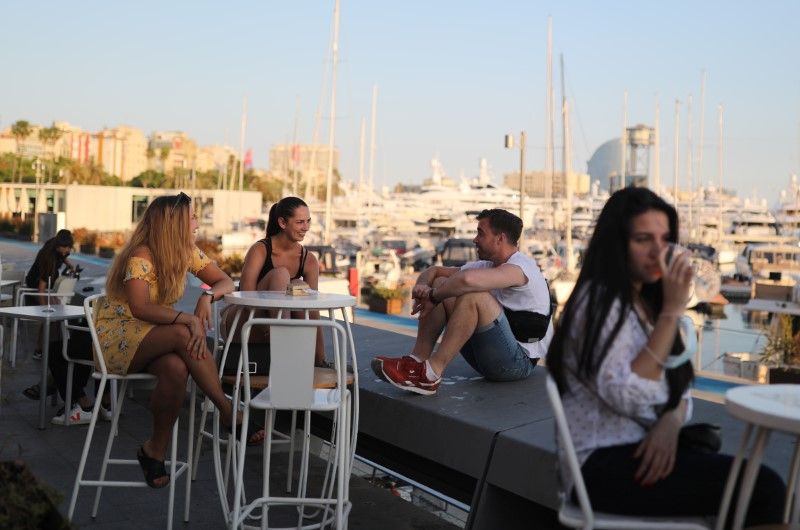Lithuania capital embraces al fresco dining as lockdown eases
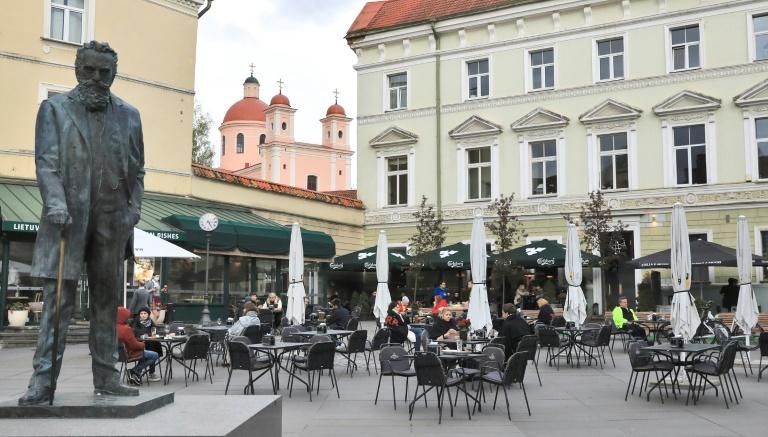 The city of Vilnius hopes to become 'one large outdoor cafe' (AFP Photo/PETRAS MALUKAS)
The city of Vilnius hopes to become 'one large outdoor cafe' (AFP Photo/PETRAS MALUKAS)Just over a week after open-air dining was allowed to resume in the Lithuanian capital, a public square named after a doctor and independence activist was hopping with diners at several dozen tables.
“We missed this so much,” said Elena Cerniauskiene, a 33-year-old bank worker out with her husband and their daughter in Jonas Basanavicius square.
“It’s like Christmas and New Year’s Eve all at once,” she told AFP on Friday.
As the Baltic country emerges from lockdown after recording a drop in coronavirus cases, the city of Vilnius hopes to become “one large outdoor cafe”, mayor Remigijus Simasius has said.
So far, the city has issued nearly 300 outdoor dining permits — around 100 more than in previous years — and made them free because of the pandemic, according to the mayor’s office.
It has also vowed to allow cafes and restaurants access to around 20 public spaces in the capital of the eurozone country of 2.8 million people — although indoor dining is still banned.
Now “we can do around a quarter of the business we’re used to”, said Raimondas Pranka, head of the Lithuanian association of bars and cafes.
“It isn’t much, but in March and April it was absolute zero,” he told AFP.
Piano Man Outside, one of the largest outdoor bars in the city centre, has posted government-issued virus safety guidelines at its entrance and has staff ensure that customers comply with social distancing rules.
Most of the customers observed by AFP on Friday had their face masks off, even when not drinking or eating.
The bar’s owner Saulius Galdikas said the decision to open outdoor cafes gave him “a big emotional boost”, but added that he would be even happier if he could resume indoor seating at his other locations.
“It’s strange that shops, even shopping centres, are open, but cafes are not permitted to open, even with all the safety measures taken,” he told AFP.
The National Health Centre’s Vilnius department said the decision to open outdoor cafes does not appear to have had any adverse effect on infection levels.
“That’s because the air outside moves quickly and circulates much better, while sunlight and higher temperatures have a significant impact as well,” its head Rolanda Lingiene told AFP.
The Baltic state has registered 1,436 confirmed cases of the disease, including 49 deaths.
SOURCE: AFP

